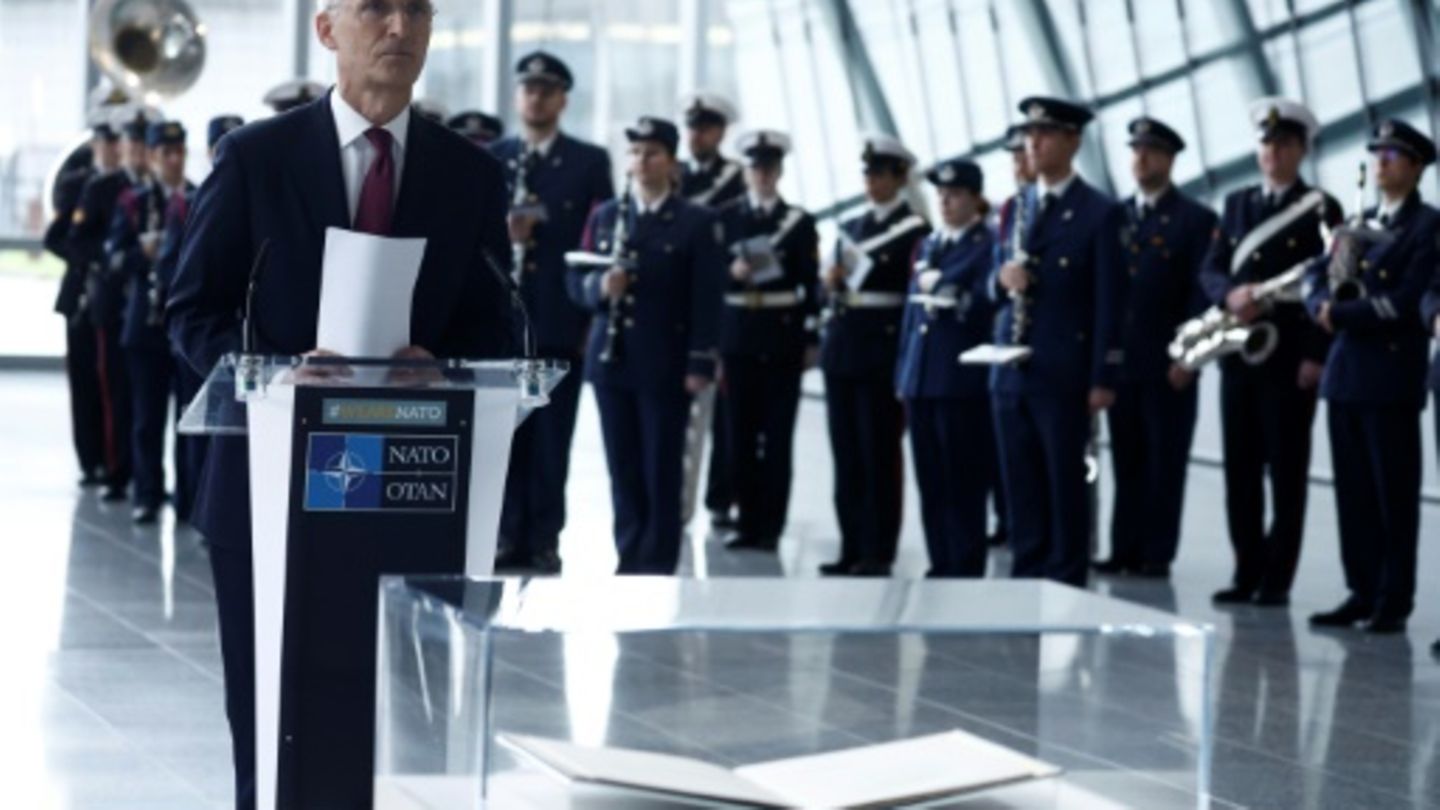Against the backdrop of the Ukraine war and a possible dwindling US commitment, NATO has called for more unity on its 75th anniversary. Secretary General Jens Stoltenberg called the transatlantic alliance a guarantor of peace and security in Brussels on Thursday. At the same time, he called on North Americans and Europeans to stick together because they are only “safer and stronger together.”
“I believe in America and Europe together,” said Stoltenberg at the ceremony at the Brussels headquarters. A “fair sharing of the burden” is essential. The USA has been demanding for years that the Europeans should spend more on their defense. Currently, only around 20 of the 32 allies meet the NATO quota of two percent of gross domestic product, including Germany.
US President Joe Biden reaffirmed the United States' commitment to the assistance pact and thus took a clear opposing position to his expected election challenger Donald Trump, who had questioned the NATO assistance pact.
“We must remember that the sacred commitment we make to our allies – to defend every inch of NATO territory – also makes us safer,” emphasized the US president, who voted for a NATO alliance in November's election wants to run for a second term, in a statement. The Europeans fear a decline in US commitment if Trump wins the election.
The original North Atlantic Treaty was exhibited in Brussels for the first time to the sound of a military band. In the agreement of April 4, 1949, the USA and eleven other countries assured each other of mutual assistance with regard to the Soviet Union.
Federal Foreign Minister Annalena Baerbock (Greens) said that the NATO motto: “One for all and all for one” still applies. In view of Russia's brutal war of aggression in Ukraine, NATO is “the best protective umbrella not only for our security, for our peace, but also the best protective umbrella for our democracy.” “Without security everything is nothing,” wrote Chancellor Olaf Scholz (SPD) in the online service X.
Emotions were particularly felt among the foreign ministers of the Baltic states, which have been part of NATO for 20 years. The representatives of Estonia, Latvia and Lithuania recalled the threat to their countries from the former Soviet Union and today's Russia. Lithuania's Foreign Minister Gabrielius Landsbergis warned that “NATO's biggest battles could lie in the future.” If the alliance doesn't prepare for this, it would be the “biggest mistake” in its history.
US Secretary of State Antony Blinken said that with the accession of Finland and Sweden, NATO is “stronger, larger and more united than ever.” He made the comments at the signing of a memorandum of understanding with Finland on the fight against Russian disinformation.
Following the ceremony, the foreign ministers of the 32 member states met with the Ukrainian chief diplomat Dmytro Kuleba at the NATO-Ukraine Council. Kuleba urgently called on the allies to provide additional air defense systems against Russian attacks. In the online service
Baerbock supported his appeal. Every country in Europe must check “what it can deliver to Ukraine,” she said in a joint video message with Kuleba. For Ukraine, “every day, every month counts.”
The allies understood the urgency of Kuleba's demands, Stoltenberg said at the end of the two-day meeting. Several countries wanted to make “new efforts” to supply air defense systems, he said, without naming states.
Before the meeting, Stoltenberg had discussed a new Ukraine aid fund of 100 billion euros – also to prepare NATO for a possible US withdrawal under Trump. At the first debate on Wednesday, Germany and other large countries such as Spain reacted cautiously.
On the other hand, there were positive signals for Stoltenberg's second proposal to have NATO coordinate arms deliveries from member states to Kiev in the future. So far, the USA has organized support within the framework of the so-called Ramstein support group. Stoltenberg hopes for decisions by the NATO anniversary summit in Washington at the beginning of July.

